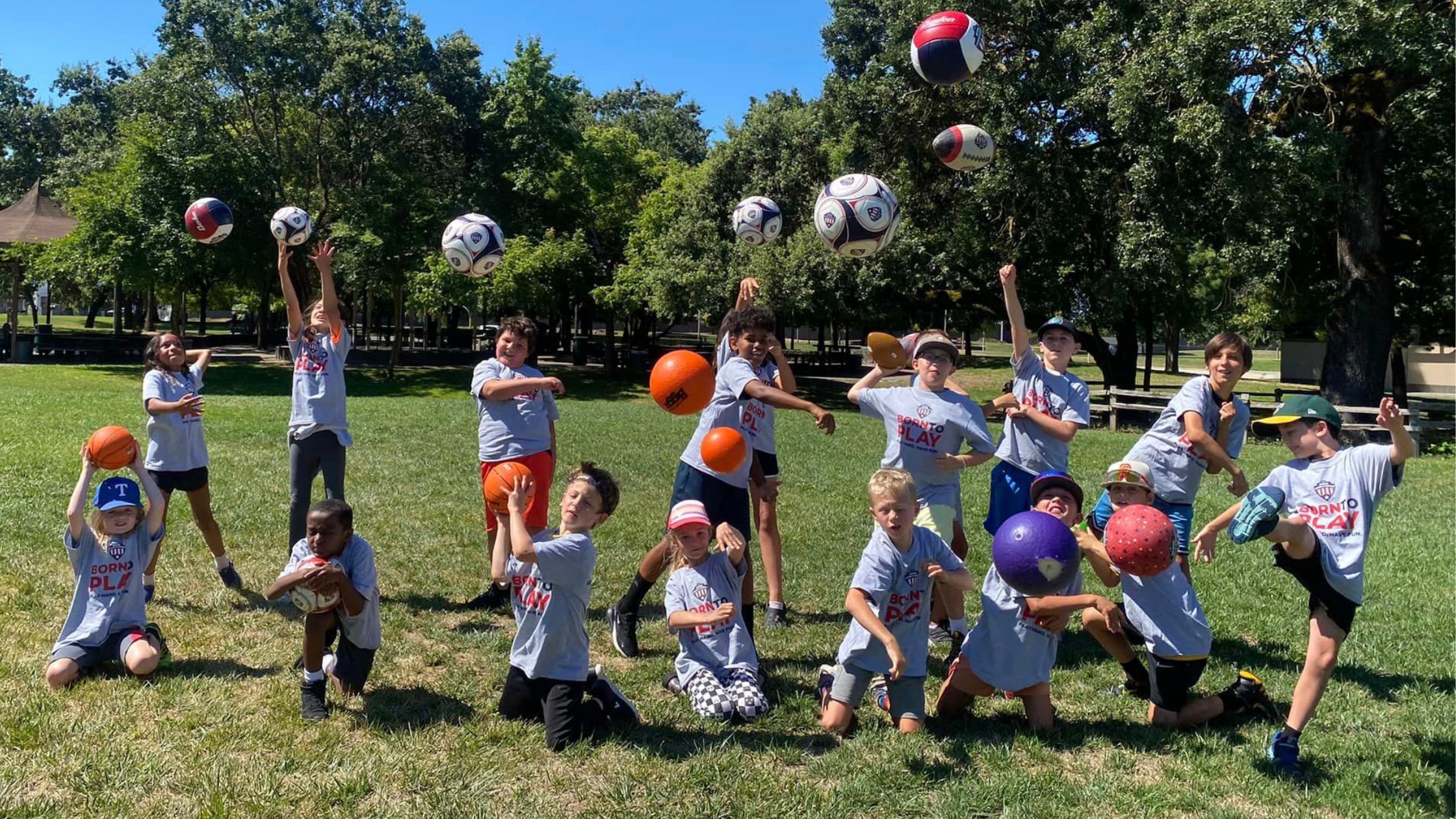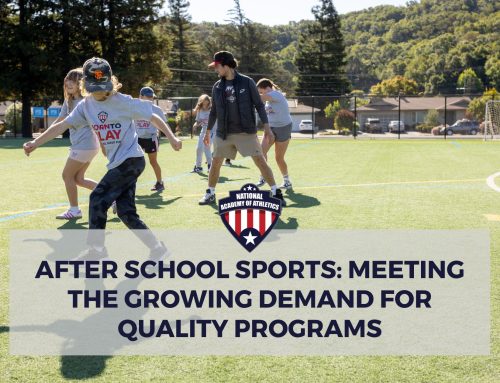Why Kids’ Summer Camp Matters: A Guide to Positive Youth Sports for Parents and Coaches
By: Aaron Locks, NAofA Founder and CEO
As I travel across this great nation, a recurring theme emerges from conversations with parents: the struggle of balancing support for their children while respecting the role of the coach. Sideline coaching or offering extra instructions during games often stems from good intentions, but it can inadvertently hinder a child’s experience. As someone with over 4 decades of experience professionally and raising two, now adult, sports kids, I want to share and explore how parents and coaches can foster an environment that prioritizes fun, growth, and long-term engagement in sports, starting with the right kids’ summer camp experience.
Trust the Process: Supporting Coaches and Kids
One of the greatest gifts parents can give their young athletes is trust—trust in the coach, the team process, and the game itself. When parents align with the coach’s philosophy and reinforce their guidance, they empower kids to embrace teamwork and learn from their experiences. For example, imagine your child dribbling a basketball during a game. While you might be tempted to shout, “Take it to the hoop!” the coach may have instructed the player to pass and set up an offense. Mixed messages can confuse your child and undermine their confidence. Similarly, in softball, yelling for a child to throw to home plate when the coach has called for a different play can create unnecessary tension. Instead, focus on encouraging your child to listen to their coach and enjoy the journey.
The Role of Positive Reinforcement
Research shows that a supportive approach significantly enhances a child’s experience in sports, fostering resilience that’s crucial for both on-field and off-field success. Rather than focusing solely on results, emphasizing effort helps children build a growth mindset, one that thrives on learning from mistakes and overcoming challenges. As parents, it’s essential to remember from our own childhoods that sports are meant to be fun. As sports psychologists often note, kids should “play” sports, not “work” at them. This playful attitude allows them to enjoy the game while developing teamwork and perseverance skills that extend beyond the field. Parents can reinforce positive behavior by expressing unconditional support. Simple affirmations like “I love watching you play” help shift the focus away from performance and onto the enjoyment of participating. This not only reduces stress but also cultivates an environment where the child feels valued, contributing to a more enjoyable experience for everyone involved.
Especially when paired with the kind of tips offered by the Positive Coaching Alliance, this kind of encouragement fosters intrinsic motivation, which is key for long-term engagement in sports and personal development.
The Importance of Communication and Alignment
Open communication between parents and coaches is key to creating a unified message for young athletes. Taking the time to understand the coach’s goals and strategies allows parents to align their language and actions to support those objectives. When children hear consistent messaging from both parents and coaches, they feel more secure and can focus on improving their skills. A practical way to ensure alignment is by attending parent meetings, asking thoughtful questions, and volunteering when needed. Building a positive relationship with the coach enhances trust and cooperation, making it easier to address any concerns that may arise. Additionally, parents play a vital role in teaching respect for the coach. By modeling respect, such as refraining from questioning decisions and simply expressing gratitude with phrases like “Thanks, coach,” parents reinforce the importance of trust and respect in the athlete-coach relationship. This consistency contributes to a positive, supportive environment for the child’s growth in sports.
Fostering Long-Term Engagement in Sports
Sadly, national statistics show that over 72% of kids drop out of sports by age 13, often due to burnout or the pressure to win. To combat this trend, it’s crucial for parents and coaches to prioritize fun and exploration over rigid specialization. There is no need to “play up” or jump into high levels of competition or travel sports. Encouraging young athletes to participate in multiple sports not only helps reduce the risk of overuse injuries but also keeps them engaged by introducing new challenges and skill sets.
Summer camps are a perfect opportunity for kids to explore new sports and build confidence in a fun, low-pressure environment. Late bloomers, in particular, tend to thrive when given the opportunity to develop at their own pace. Dan Walsh, an Olympic rower, exemplifies how trying different sports during his youth played a key role in his success. The variety of athletic experiences he had helped build the mental fortitude necessary for elite competition. This flexibility fosters curiosity and allows kids to discover the activities they truly enjoy, setting them on a path of long-term growth and success.
For many families, summer camps for kids are the best place to begin building a healthy relationship with sports.
Building Lifelong Skills Through Sports
Youth sports offer a unique opportunity to teach important life skills like teamwork, perseverance, and adaptability. By emphasizing these broader lessons, parents and coaches can help children understand that the value of sports goes beyond just wins and losses. It’s important to encourage young athletes to reflect on why they started playing and to rediscover the enjoyment they felt as beginners. Programs focused on mental resilience, such as “The Composed Sports Kid,” have been shown to help kids improve composure, manage expectations, and let go of mistakes. These programs foster a mindset that helps children stay focused and confident, ensuring they remain engaged throughout their sports journey.
Before jumping into competitive leagues, consider starting with youth sports camps and clinics to help your child learn the fundamentals while having fun.
Conclusion: A Shared Responsibility
Creating a positive youth sports experience requires effort from parents, coaches, and the kids themselves. By fostering trust, emphasizing fun, and promoting communication, we can help young athletes develop the skills and mindset they need to succeed, both in sports and in life. So the next time you’re on the sidelines, remember: your job is to cheer, support, and enjoy watching your child grow.
Together, we can keep kids playing, learning, and loving the game, starting with a great kids’ summer camp experience.




